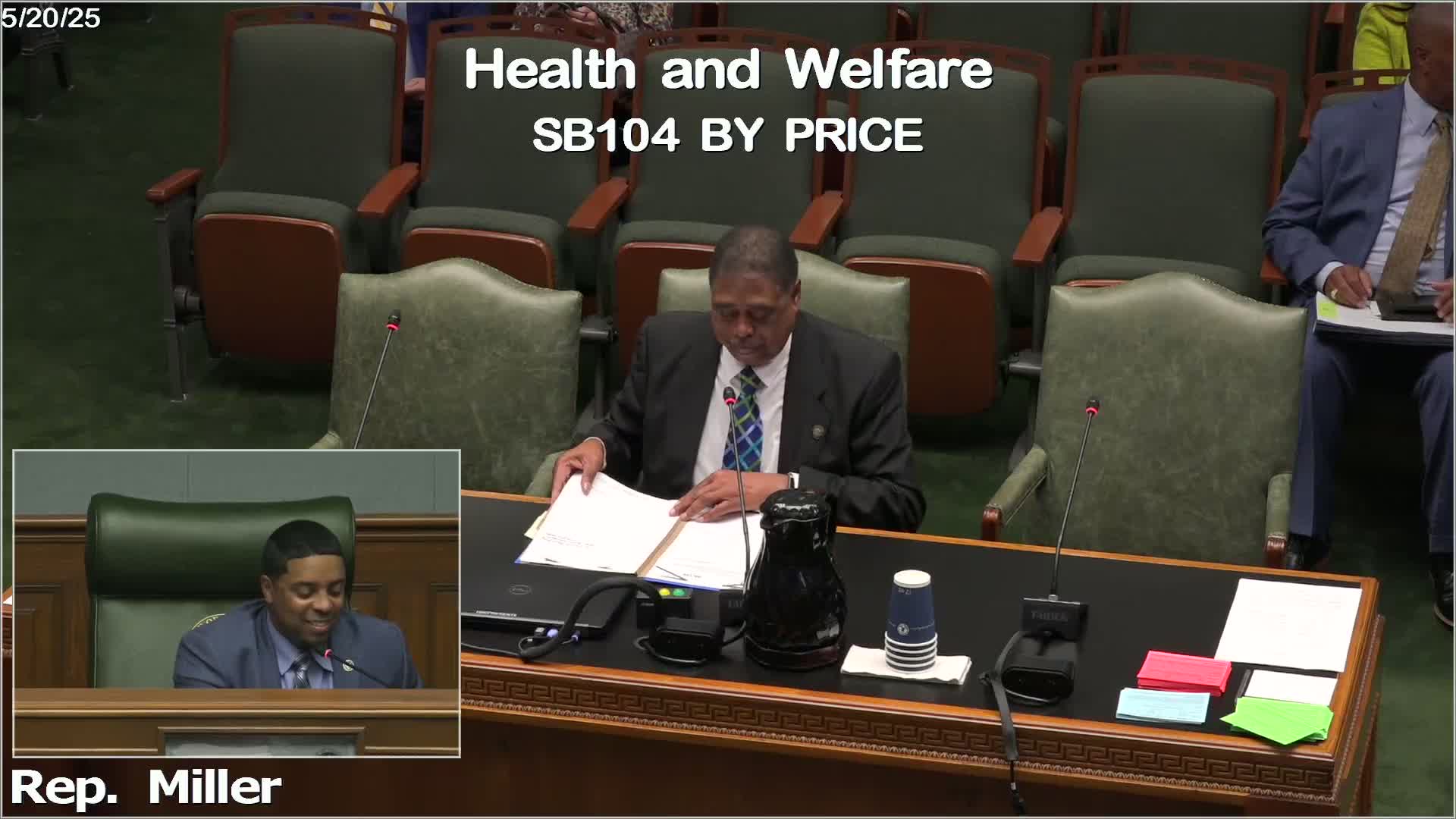Article not found
This article is no longer available. But don't worry—we've gathered other articles that discuss the same topic.
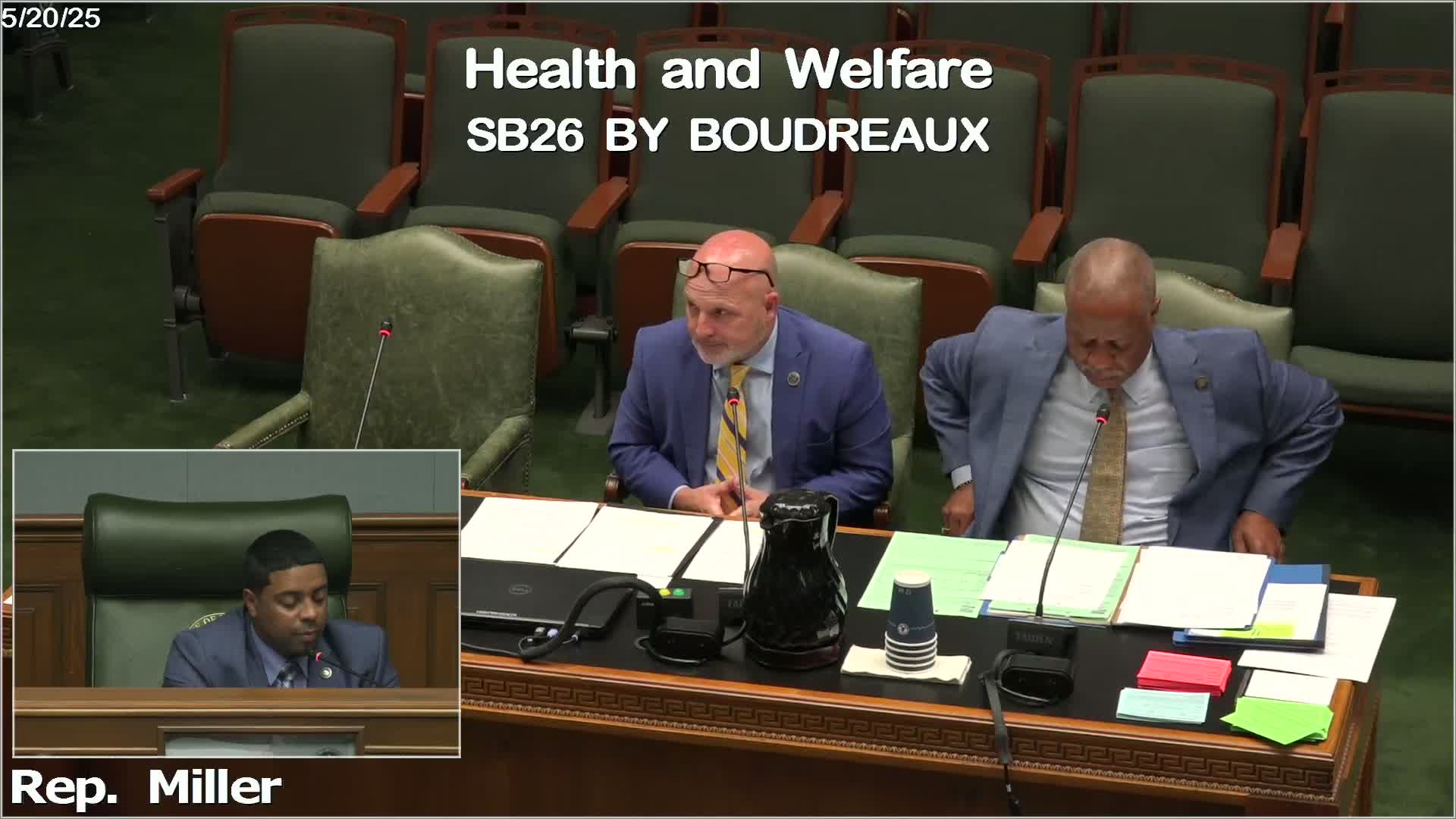
Committee approves bill to add type 1 diabetes information to school health communications
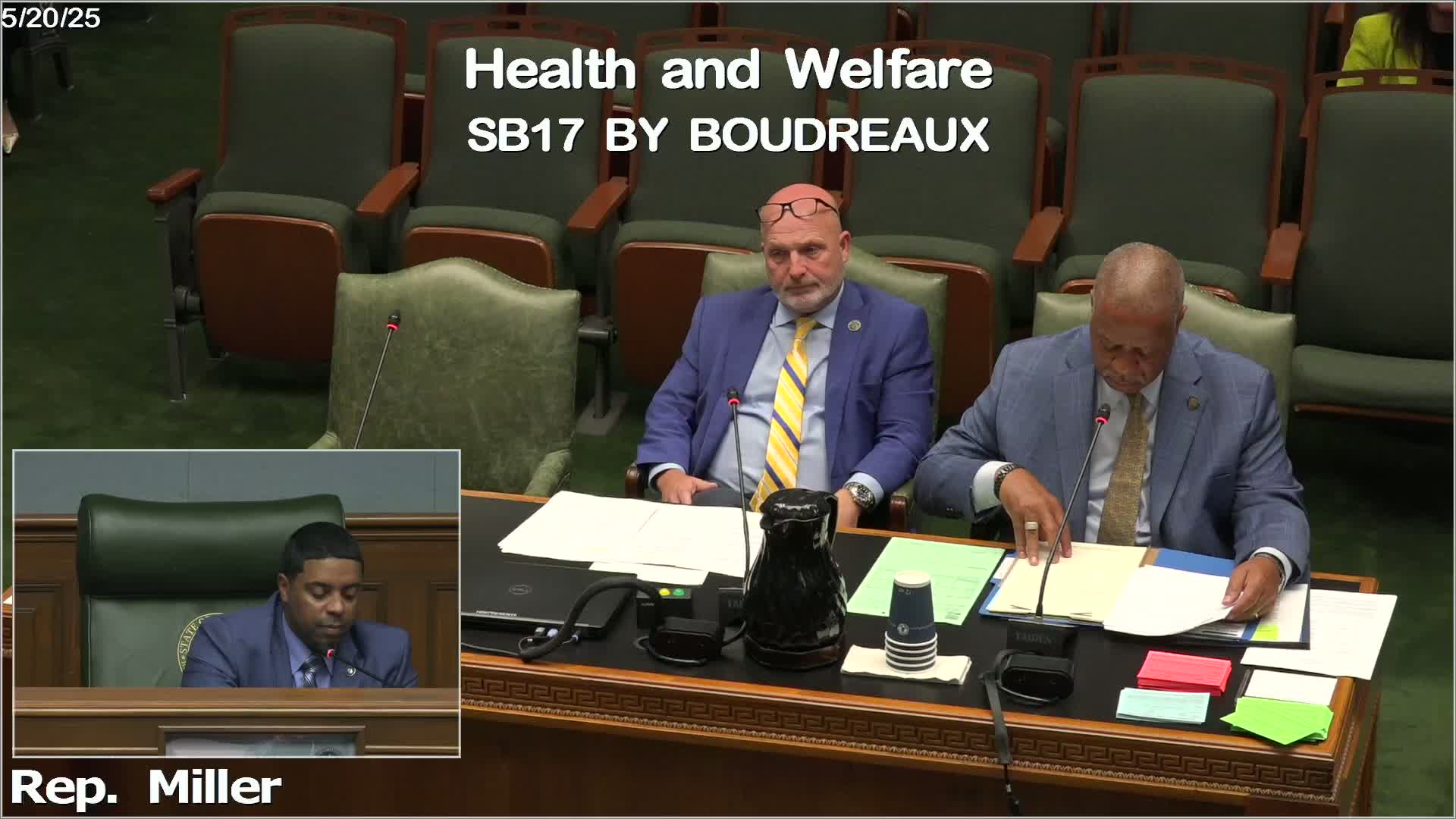
Committee drops termination date for palliative care interdisciplinary advisory council
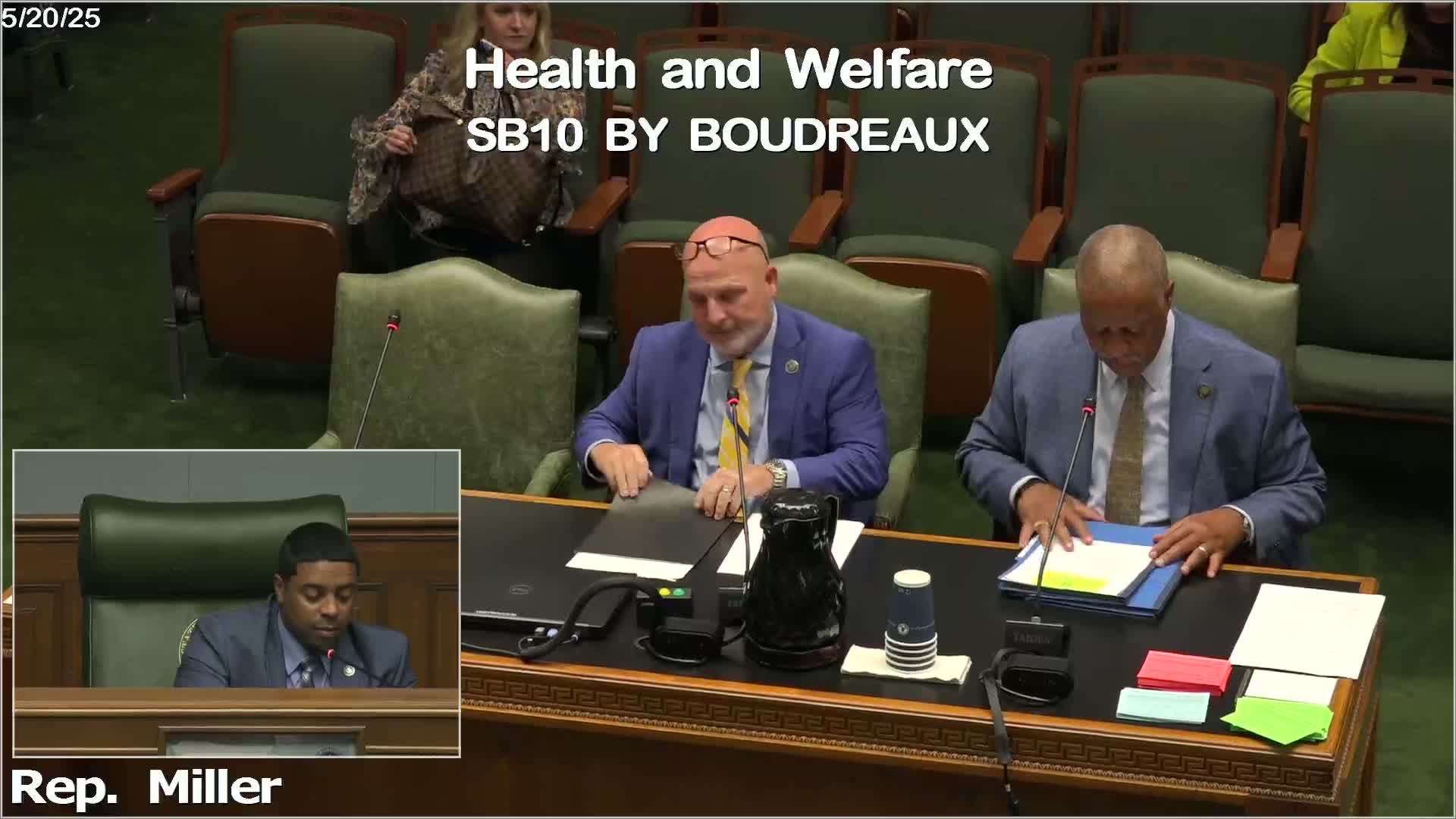
Committee clears bill allowing optometrists to serve on state and national boards
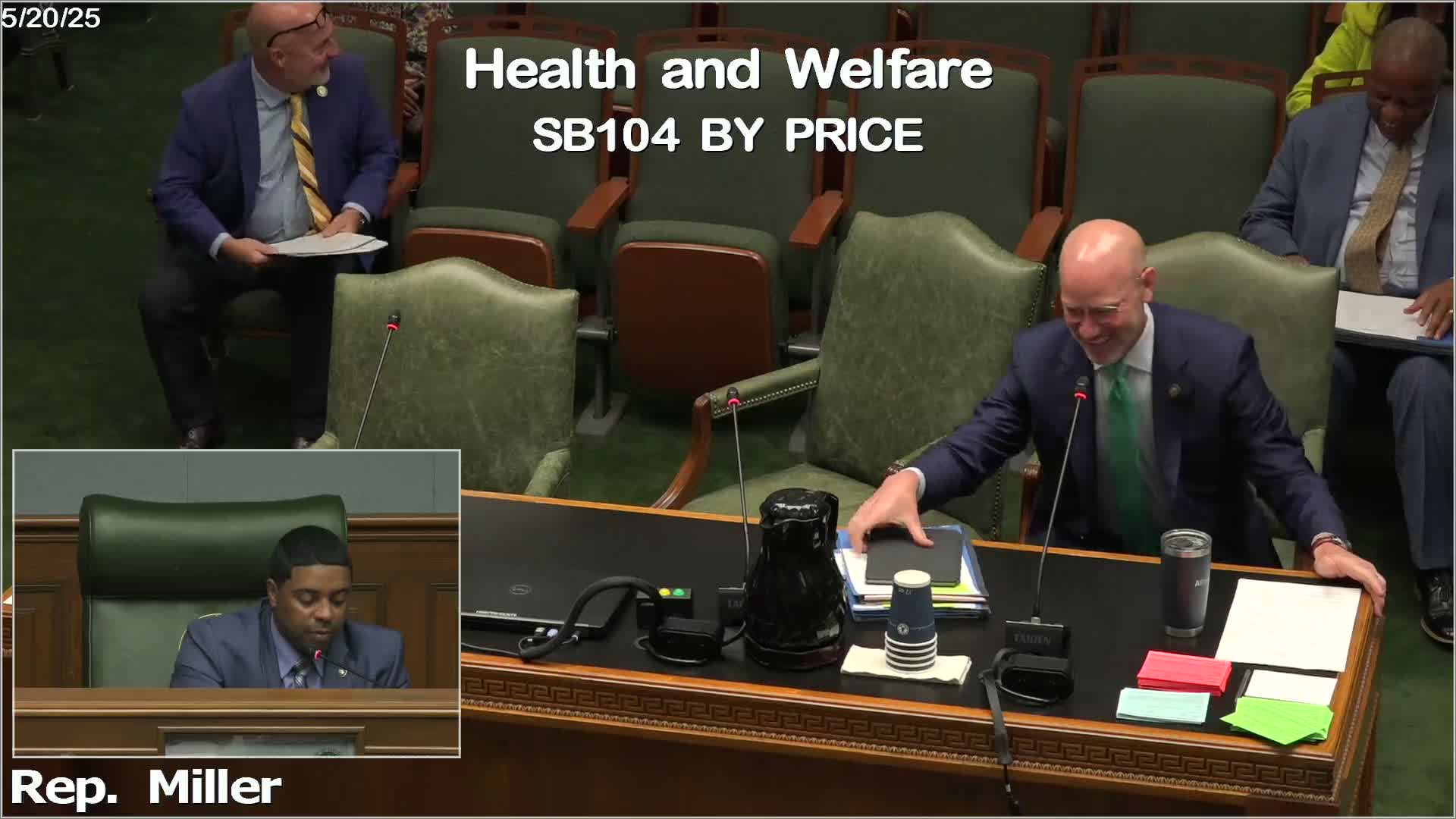
Committee advances bill expanding remote patient monitoring eligibility to pregnant women and certain infants
